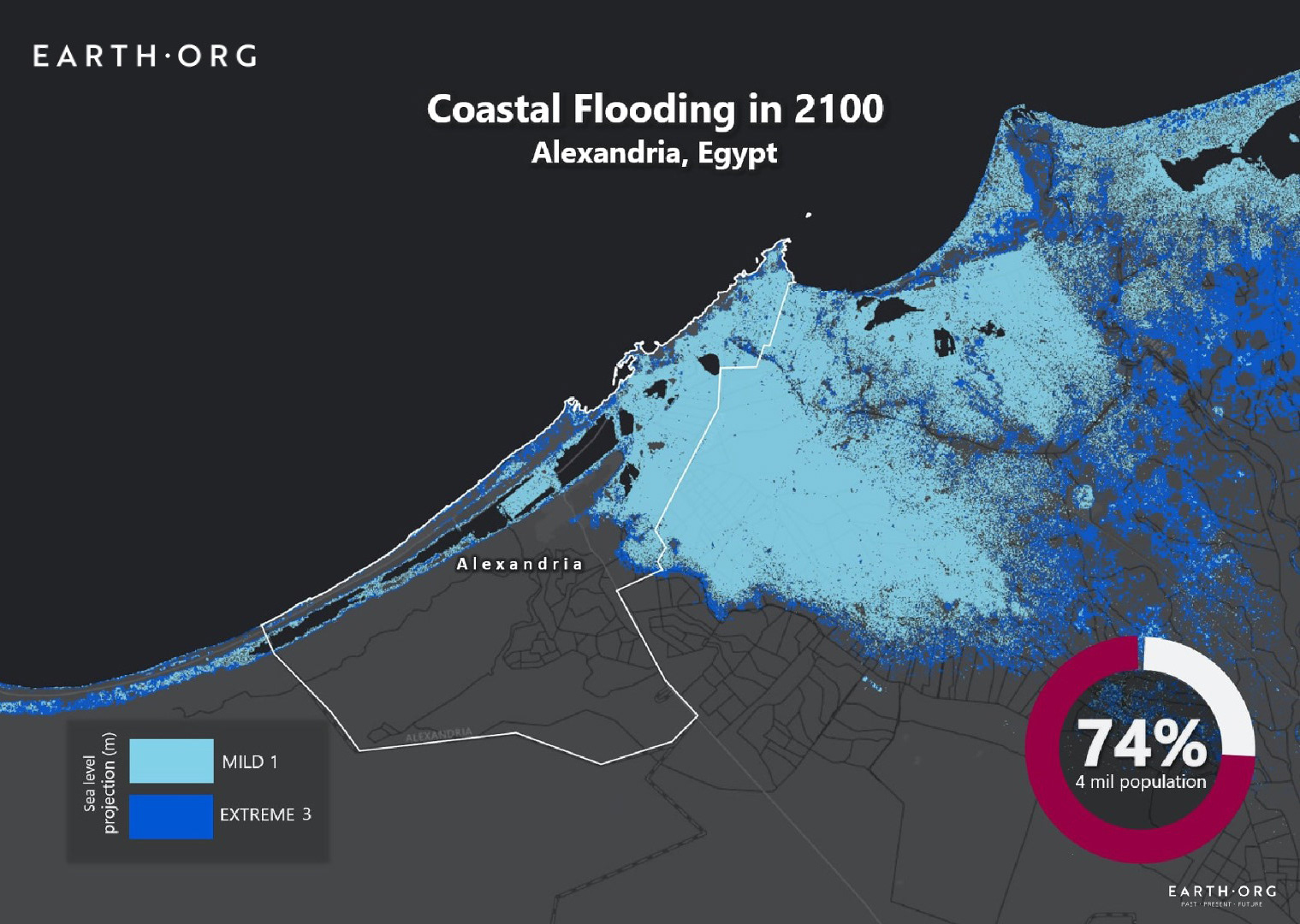Alexandria the city was established by Alexander the Great in 332 BC., nearly drowned. A third of Alexandria will become underwater or uninhabitable by 2050, according to a United Nations report.
This project is about city is metaphorically drowned in memory before being drowned by the environmental and human changes it is taking place; As a result of global warming, sea-level rise on the one hand, and on the other due to the unjust changes being made by the state, which are reshaping the image of the city in an accelerating line from a city with its vast sea and extended shores, to a gated city that does not see the sea. It is creating a new reality for a city we are not aware of, where beaches and public Spaces have shrunk to capital luxury Spaces that do not cater to the needs of the city's inhabitants. In the last 20 years, the area of sight of the sea along the corniche has shrunk from 90% to 54%, which is repeated in the southward Lake Mariout which at the turn of the 20th century had been 200 square kilometers, and its size has now been reduced to less than 50 square kilometers due to landfilling and encroachment by outlaws or the country itself, resulting in the lake water falling to the underground water below the city, causing Alexandria to collapse into its interior and hastening its sinking.
The sea of Alexandria that turned into a metaphorical battlefield between ugliness and beauty was the witness and partner to the memories of the inhabitants of the city, where I had my first kiss on the sands of Sidi Bishr beach that was swallowed by the sea, hanging out with friends along the road of the corniche, sitting in front of his vast space whenever life is tight on us, revolting against tyranny and aspiring to freedom.
The city is not just buildings and roads. Alexandria is humans with their stories, their memories, their dreams, and their effects spanning time. The nature of the city and its changes affect us the people of Alexandria, as if there was a relationship between her fate and our fate. The feelings of sadness and concern about what happened to "the Alexandria which we are losing" led many young people to flee the city, not only in search of jobs in the capital, but also in flight from the city that makes them feel estranged from it day after day. This voluntary flight may not be an option for many of the city's inhabitants; they will soon face the same fate due to environmental forced displacement or else we will be drowned with the city.
All of this puts us before two important questions: - What is the benefit of the investment projects on which the state spends billions of pounds on the city’s residents and its future? 2- What is the fate of the residents?
The project aims to document the dramatic changes the city has been going through over the past 10 years, the impact it has had on the spirit and conscience of 5.5 million of its people, and how these changes affect their lives by monitoring the impact of human and environmental changes in the city.
The drowning of Alexandria is not just the disappearance of the place with its physical infrastructure, it means a drowning of memory and the cultural heritage of the city.
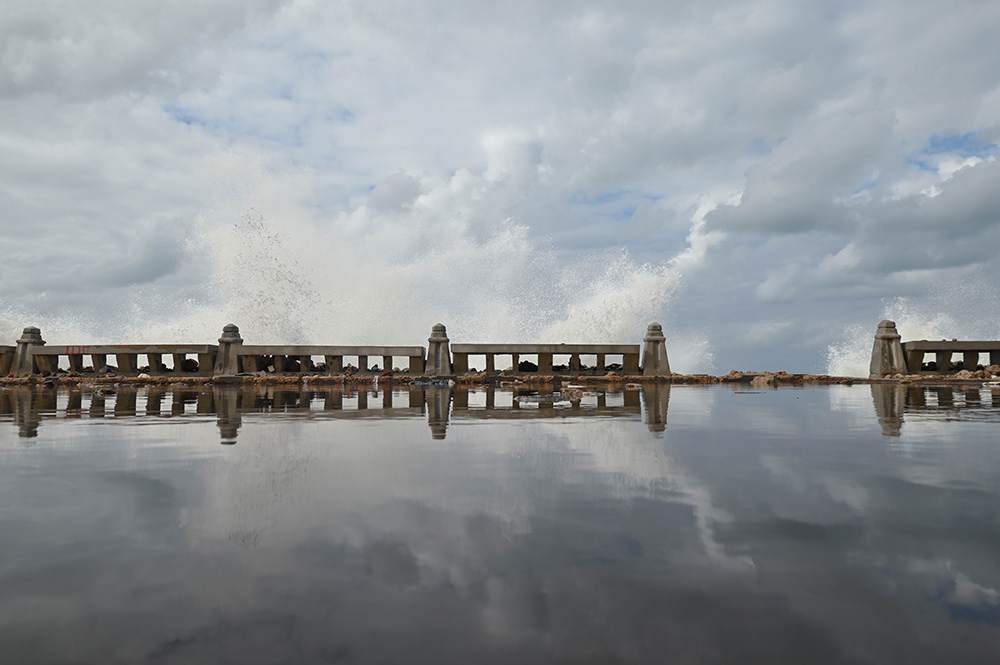
Alexandria's Corniche in the Loran area was flooded due to high waves. August 2022.
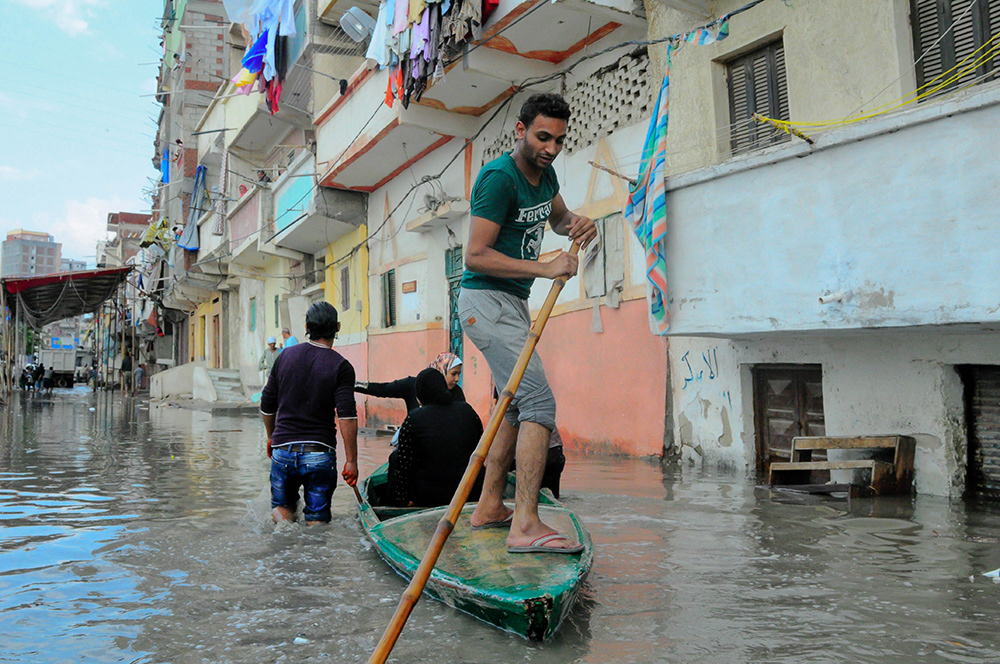
Residents of the Matraas area in western Alexandria used fishing boats to move around the street after it was flooded due to heavy rains and the failure of drainage networks due to their inability to absorb the huge amount of water. November 2015.
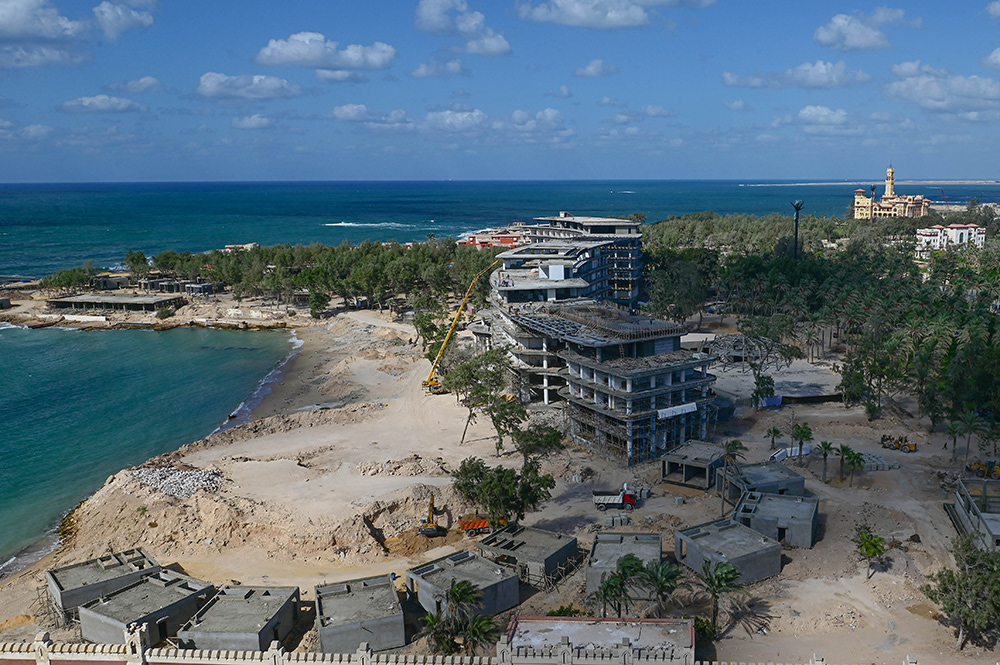
Aida Beach in Montazah Gardens, Alexandria, Egypt, is currently undergoing construction of a new hotel. The government has said that the hotel will serve citizens, but some residents are concerned that it will be out of reach for most people.
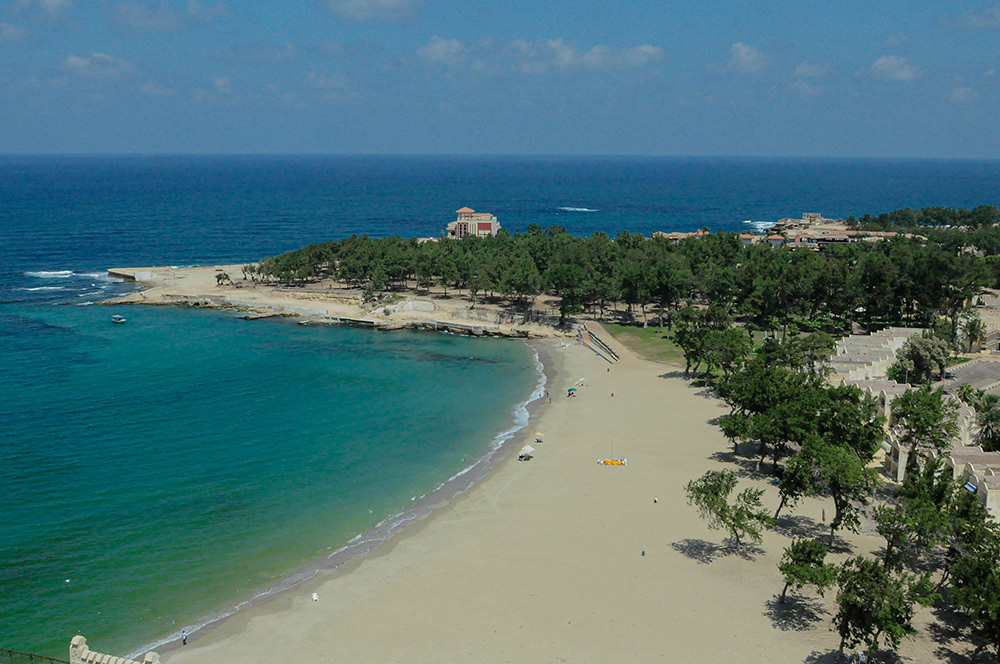
Aida Beach is one of the beaches in Montazah Gardens, a large public park located in Alexandria, Egypt. September 2019
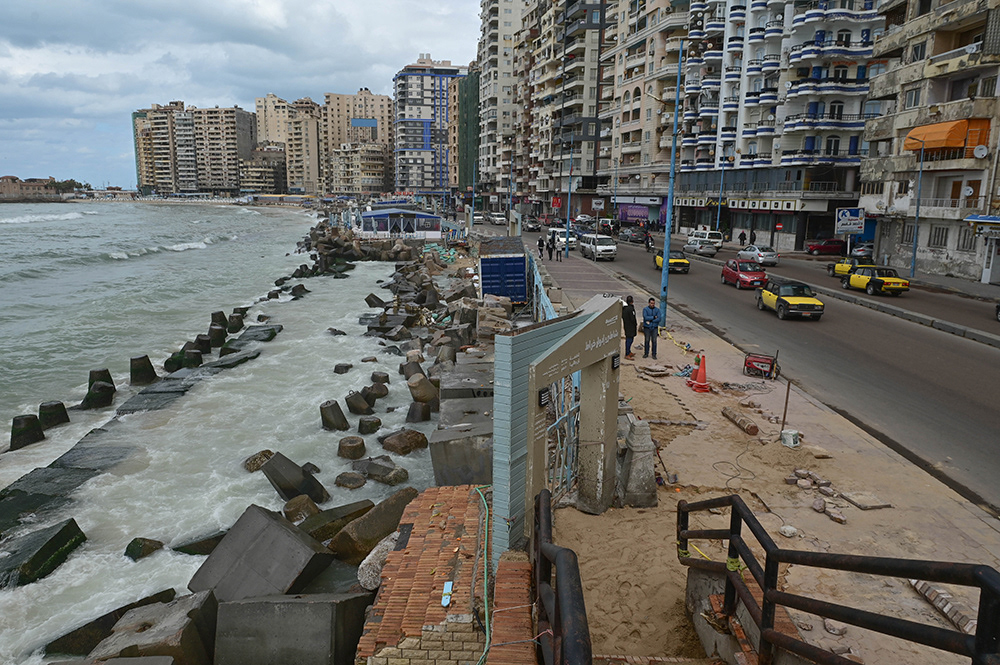
Within one year, Edouar Kharrat Beach in Alexandria, Egypt, has disappeared due to rising sea levels. The government has placed concrete blocks to protect the road from waves. February 2023.
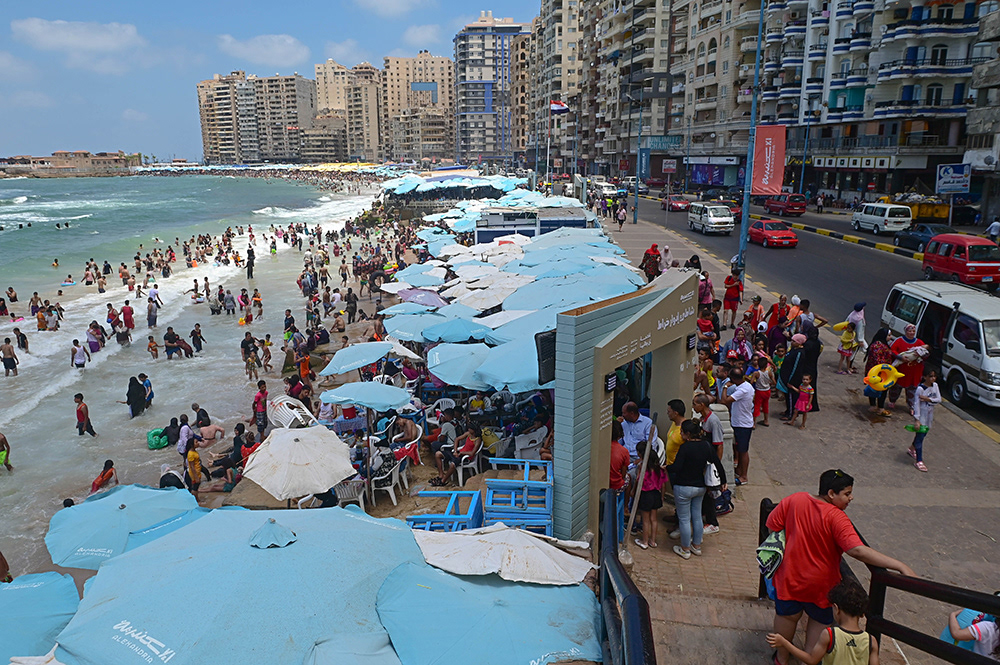
Edouar Kharrat Beach is a popular public beach located in the Sidi Bishr district of Alexandria, Egypt. The beach is named after Edouard al-Kharrat (March 16, 1926 – December 1, 2015). An Egyptian novelist, writer, poet, and translator. He was born in Alexandria, Egypt, and studied philosophy at Cairo University. July 2022

Man and dog sets in front of the Corniche in Louran area, 2019
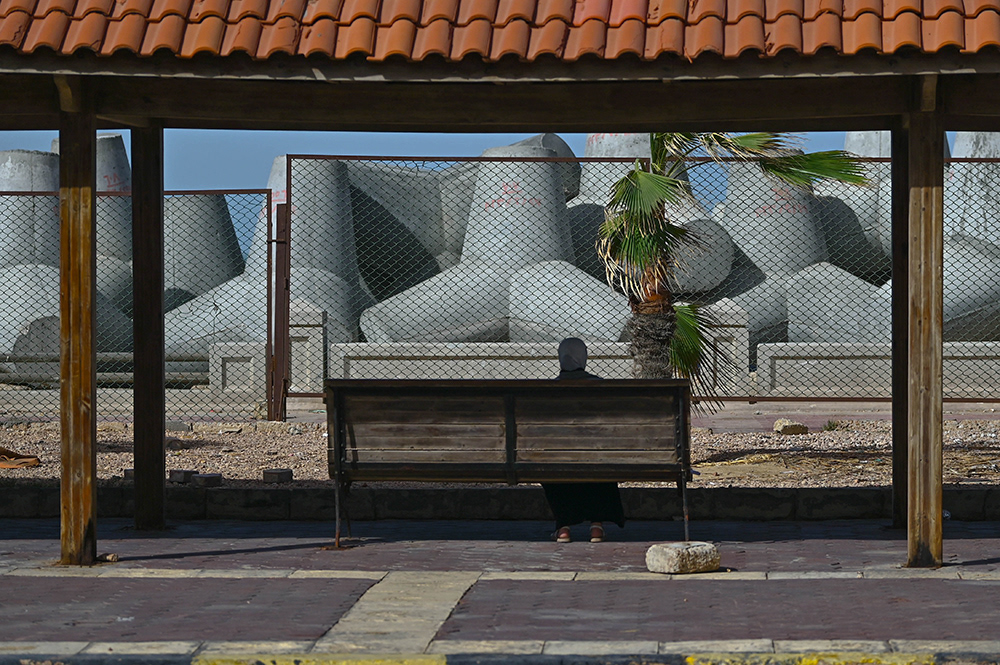
After Alexandria's Corniche was exposed to violent attacks by sea waves during storms, the government decided to deploy wave breakers in the most damaged areas, such as the Loran area. A woman sits on one of the chairs on the sidewalk overlooking the sea, where this place overlooked an open sky and a sea view. November 2023.
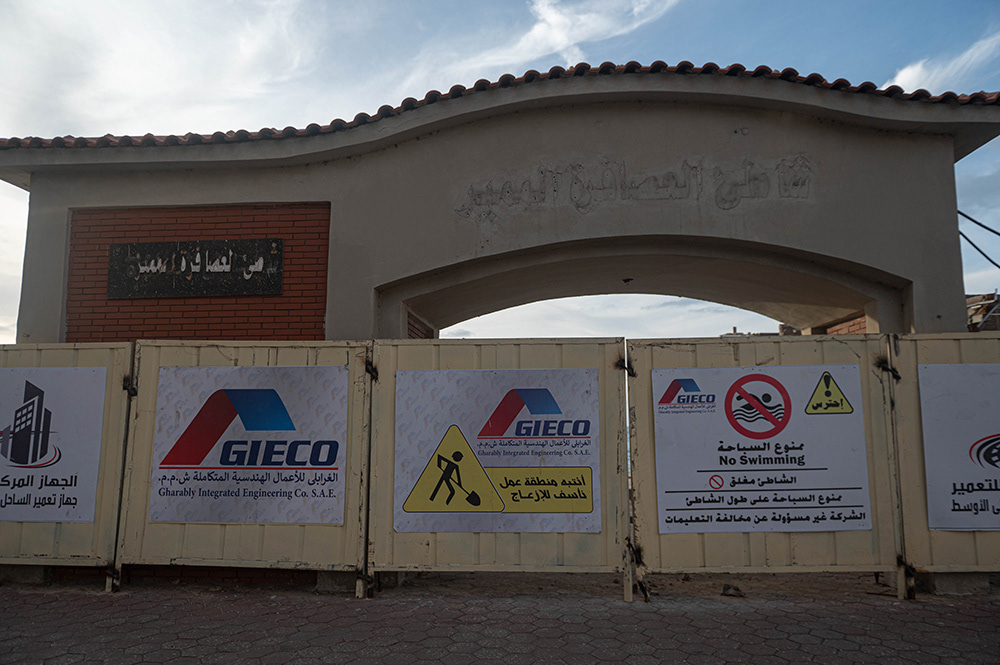
The Egyptian government has closed the beaches of eastern Alexandria, along a length of 8 kilometers on Corniche Road, under the pretext of taking procedures to protect the street from drowning. This has led to the blocking of the view of the sea from residents along that area, and without the government announcing the nature of those works, with general fear from residents of the disappearance of the beaches due to those procedures. November 2023.
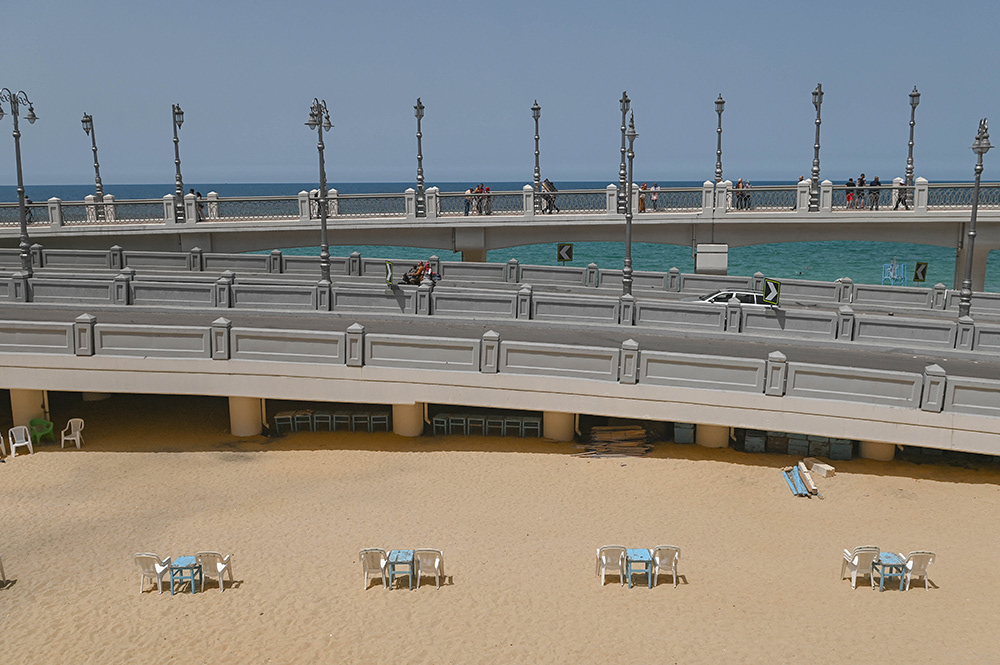
In 2021, the Egyptian government decided to expand the Corniche road and build a bridge to connect 45th Street in Alexandria to the Corniche road. This was at the expense of Miami Beach, the largest beach area in the city, which led to a decrease in the beach area and environmental impacts that changed the nature of the sand of the beach. The government decided to bring desert sand to cover the effects of construction on the beach. May 2023.
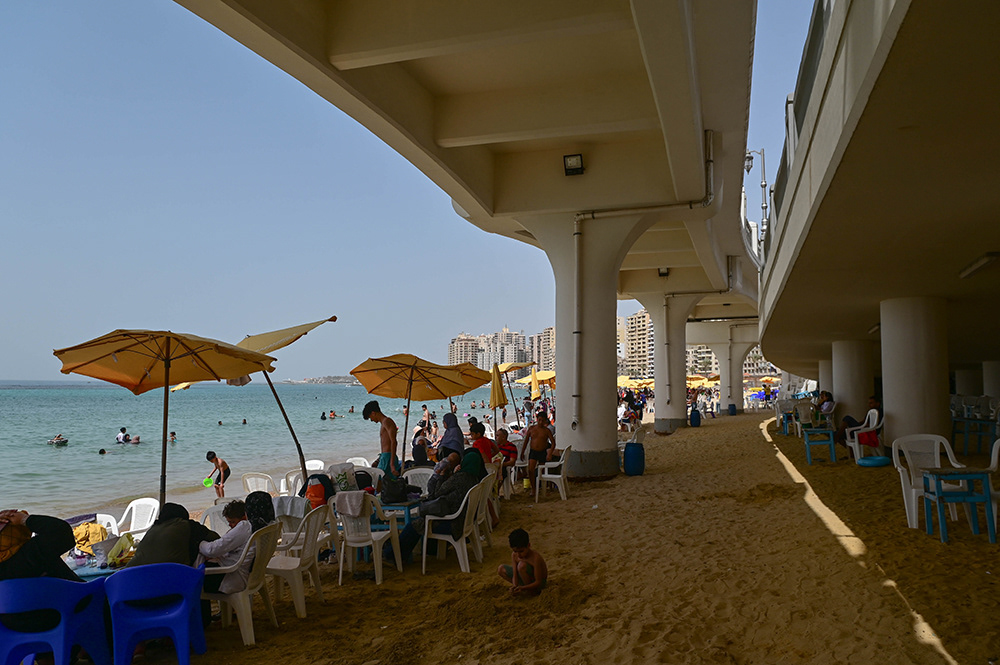
Miami Beach after the construction of Anwar Sadat Bridge, one of the vacationers told me that he was annoyed by the existence of the bridge because it blocks sunlight and the view of the sky. Some also expressed their dissatisfaction with the remains of construction on the beach sand, which is alien to the coastal environment of this area.May 2023.
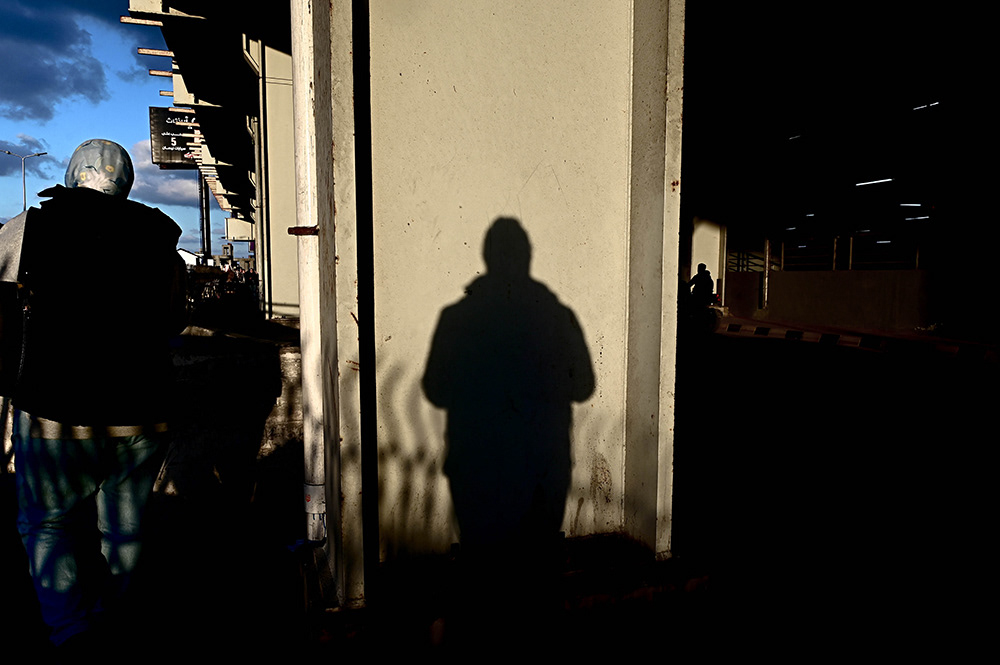
When I was a child, I used to come to the Sidi Gaber area with my family and my cousins to go to the sea at the Teachers' Club, which was located below the level of the street so that passers-by could see the sea. Now, after the government decided in 2016 to raise the level of the street by building a bridge to provide space below for a multi-story garage to serve a new hotel affiliated with a sovereign authority in the state, we no longer see the sea or the sky without any benefit to the public from this project, which took 6 months to build, during which the traffic congestion in the city worsened because they closed the Corniche road, the most important and most used road in the city. December 2022.
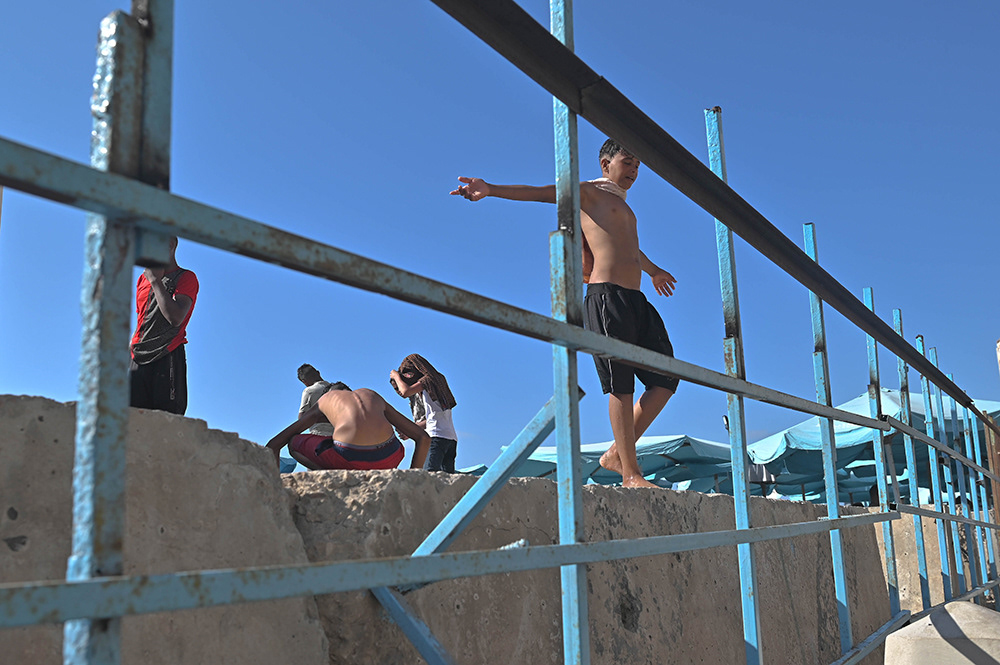
A young man enjoys swimming in the sea on a beach covered with concrete blocks to protect the road from high sea waves. July 2022
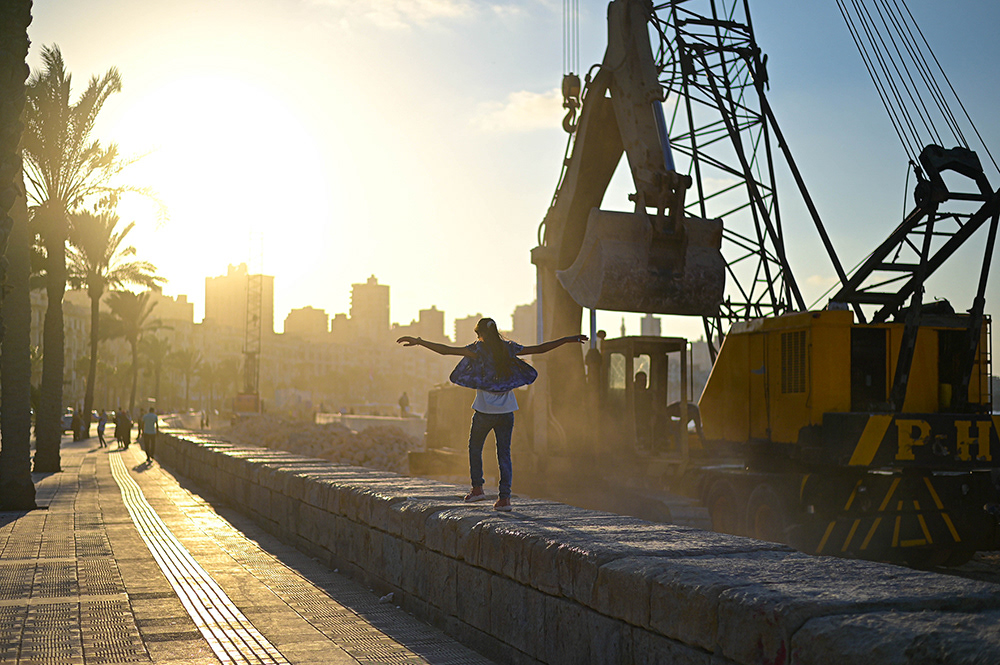
A young girl walks along the old Corniche wall in the Manshia area of downtown Alexandria, with heavy construction equipment in the background carrying out beach protection operations. August 2021.
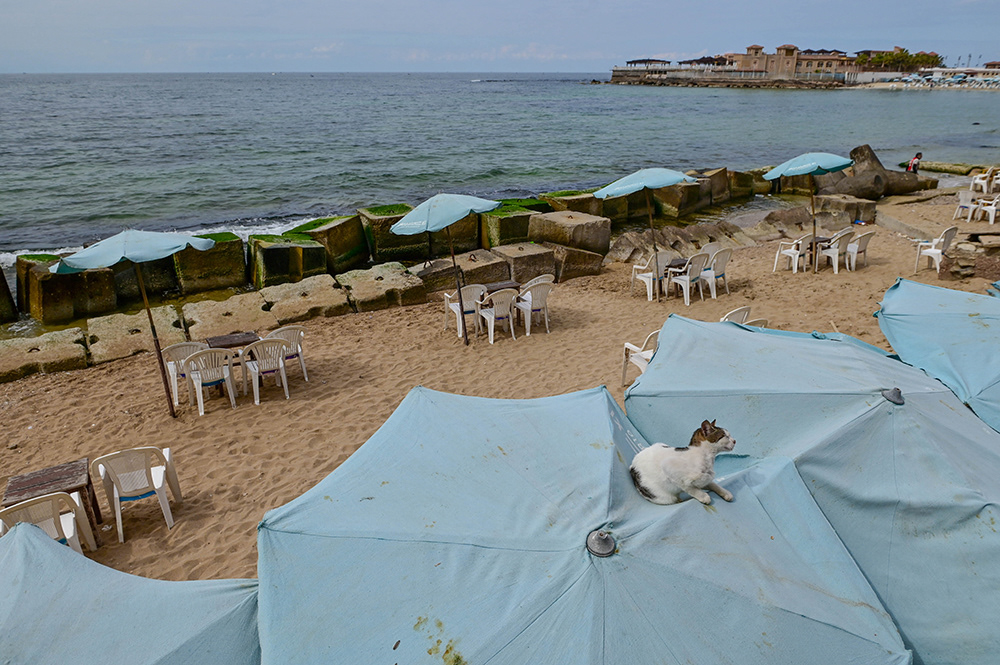
Due to concerns about the city's sinking, the government has taken intensive measures to protect the beaches, including the deployment of concrete blocks along the beach and the installation of wave breakers at a distance from the beach in the deep water. February 2023.
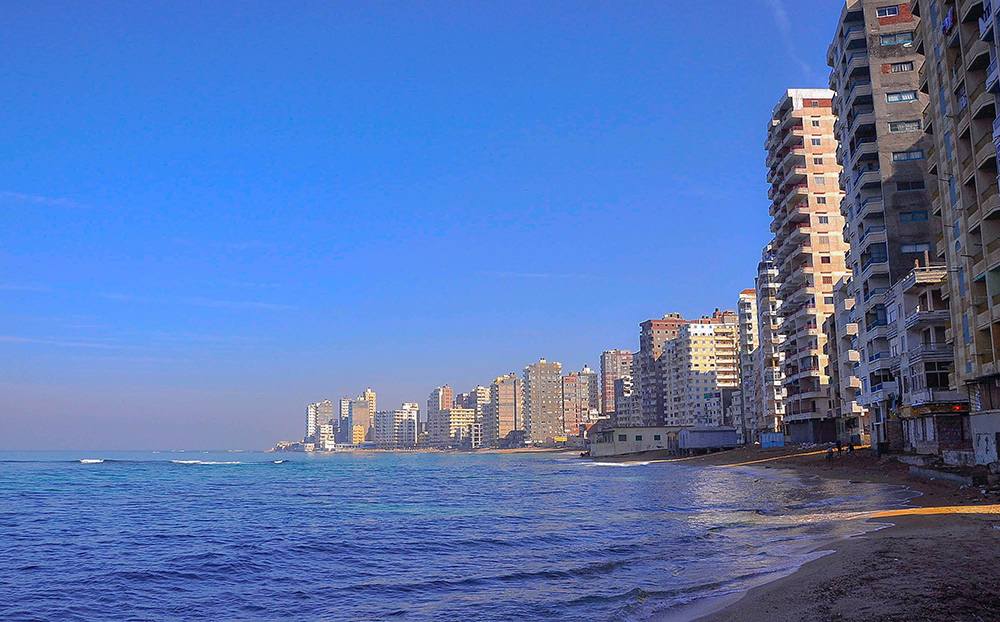
Mediterranean Sea waters are approaching the residents' homes in Abu Qir Beach, east of Alexandria, the area most affected by the threat of flooding in Alexandria, December 2010.
